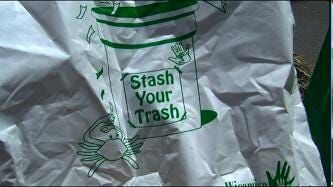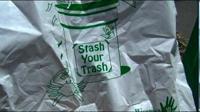CAMBRIDGE, Md. - In hopes to help save the Chesapeake Bay, scientists are diving into new research on how plastics affect marine life. Little is currently known but people like Mark Robbins of Cambridge say the problem is persistent throughout many Bay waterways.
Robbins doesn't have to travel far to find and collect bags full of trash. In three days alone, Robbins says he can collect a bagful within a 500-foot radius around Cambridge Creek.
Christine Knauss, a plastics researcher at Horn Point Lab, is currently one of only two scientists in the world studying the effect the breakdown of that plastic into microplastic has on oysters. So far, she's only just skimmed the surface.
"Plastic in the environment in general is really harmful," Knauss said. "We know very, very little. Most of what we know is just about ingestion and what oyster species and organisms can ingest plastic. Usually it's most of them."
Knauss says previous research also shows that plastic can affect oyster respiration and growth. And while humans ingest plastic particles everyday and from all different kinds of sources, Knauss says, eating oysters or fish is no exception. Still, Knauss says the traces of plastic are so tiny, oysters and fish are all likely still safe to eat.


